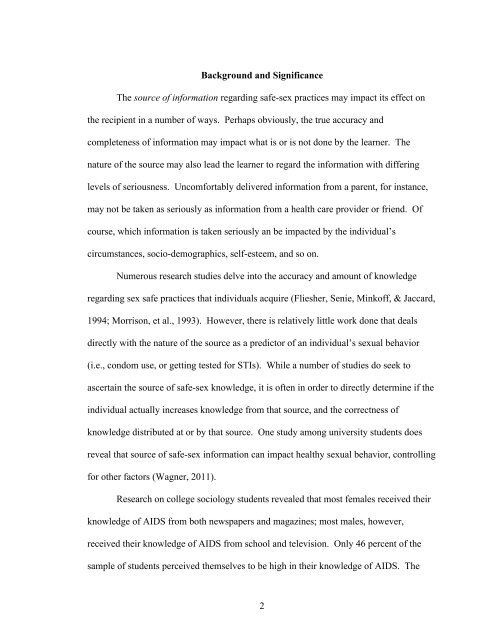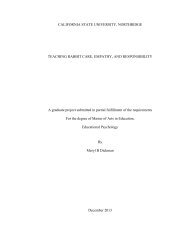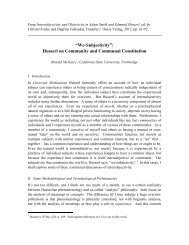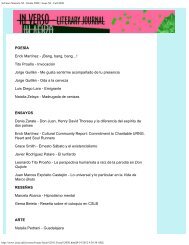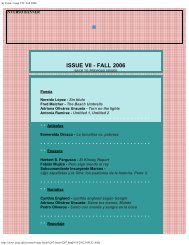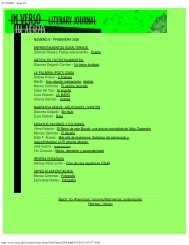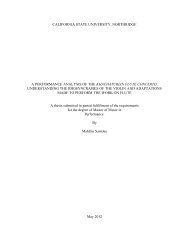Safe-Sex Knowledge, Sexual Behavior, and Drug Use A thesis
Safe-Sex Knowledge, Sexual Behavior, and Drug Use A thesis
Safe-Sex Knowledge, Sexual Behavior, and Drug Use A thesis
Create successful ePaper yourself
Turn your PDF publications into a flip-book with our unique Google optimized e-Paper software.
Background <strong>and</strong> Significance<br />
The source of information regarding safe-sex practices may impact its effect on<br />
the recipient in a number of ways. Perhaps obviously, the true accuracy <strong>and</strong><br />
completeness of information may impact what is or is not done by the learner. The<br />
nature of the source may also lead the learner to regard the information with differing<br />
levels of seriousness. Uncomfortably delivered information from a parent, for instance,<br />
may not be taken as seriously as information from a health care provider or friend. Of<br />
course, which information is taken seriously an be impacted by the individual’s<br />
circumstances, socio-demographics, self-esteem, <strong>and</strong> so on.<br />
Numerous research studies delve into the accuracy <strong>and</strong> amount of knowledge<br />
regarding sex safe practices that individuals acquire (Fliesher, Senie, Minkoff, & Jaccard,<br />
1994; Morrison, et al., 1993). However, there is relatively little work done that deals<br />
directly with the nature of the source as a predictor of an individual’s sexual behavior<br />
(i.e., condom use, or getting tested for STIs). While a number of studies do seek to<br />
ascertain the source of safe-sex knowledge, it is often in order to directly determine if the<br />
individual actually increases knowledge from that source, <strong>and</strong> the correctness of<br />
knowledge distributed at or by that source. One study among university students does<br />
reveal that source of safe-sex information can impact healthy sexual behavior, controlling<br />
for other factors (Wagner, 2011).<br />
Research on college sociology students revealed that most females received their<br />
knowledge of AIDS from both newspapers <strong>and</strong> magazines; most males, however,<br />
received their knowledge of AIDS from school <strong>and</strong> television. Only 46 percent of the<br />
sample of students perceived themselves to be high in their knowledge of AIDS. The<br />
2


